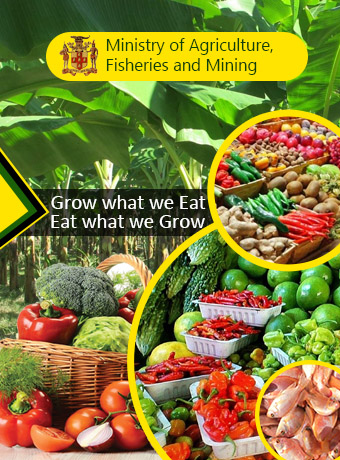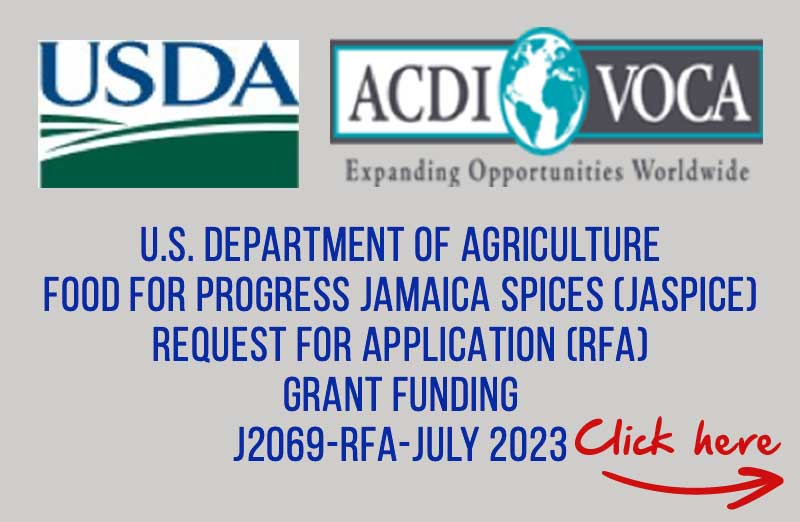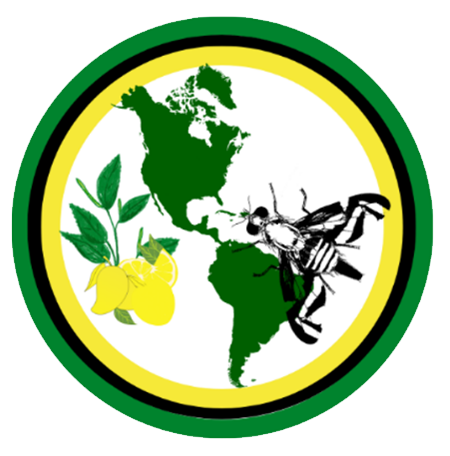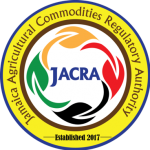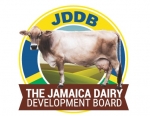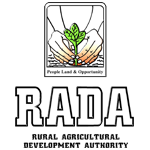Priority Programmes
The Ministry of Agriculture, Fisheries and Mining (MoAFM) is an organization dedicated to facilitating and providing public value to the agricultural, fisheries, manufacturing and services sectors of Jamaica. Our vision and mission encapsulate our pledge to provide quality service to both the public and our co-workers:
Vision
By 2030, MoAF has achieved innovative, inclusive, sustainable and internationally competitive agriculture sector.
Mission
To create an enabling environment which grows and sustains industries in the agricultural sector while fostering gender equality and social inclusion in all our policies, programmes and projects.
MoAFM and by extension its portfolio agencies are committed to “Building Synergies for Inclusive Sustainable Growth” through our core values of:
- Fairness - We aspire to provide access to opportunities to everyone regardless of sex, age, socioeconomic status, creed and ability.
- Accountability - We commit to being answerable to the relevant authorities and laws governing Jamaica.
- Integrity - We will adhere to conducting transactions with transparency; high moral standards and professionalism.
- Respect - We acknowledge our differences and will provide a safe supportive environment in which all staff are valued and engage in interactive communication.
- Excellence - We commit to a high standard of service delivery to clients and co-workers through accurate, accessible and up-to-date data; innovation and continuous improvement.
- Stewardship - We interact and collaborate with all our stakeholders with understanding of our integral role to ensure the sustainable development in the agriculture, fisheries sectors
- Transparency - We standardize operating procedures that are accessible and understandable to all.
MoAF has three main long-term goals:
- Competitive, diversified and market-oriented agriculture sectors that proactively manages risk (environmental and financial).
- Sustainable agricultural health and food safety systems and food and nutrition security.
- Protected consumers; and institutionalised quality management systems within Ministry and its portfolio agencies.
These strategic goals, which are aligned to the Vision 2030 Goals and the GOJ’s Strategic Priority – Sustainable Economic Growth and Job Creation, will be achieved through the identification and implementation of medium-term policy priorities. For 2019/20 – 2022/23, MoAF will be developing and implementing six (6) policy priorities through the building of synergies along the value chain to provide an enabling and facilitating environment for growth in the productive sectors of agriculture, fisheries, manufacturing and services. They are;
- Optimize the production and productivity of key local produce and products towards targeted markets
- Goals: (a) To increase agricultural production and productivity (b) To achieve food security by 2020 (FNS Policy) (c) Increase access of local produce to markets, finance and appropriate infrastructure and technology
- Increase access of select local industries to emerging and existing markets
Goal: To facilitate the sustainability and viability of the select local industries through the integration of emerging and existing markets
- Build climate-resilient agriculture and fisheries sectors
Goal: (a)To develop a climate-resilient agricultural sector and to increase the adoption of climate resilient practices among targeted farming and fishing communities in Jamaica
- Strengthen the National Quality Infrastructure
- Strengthen Agricultural Health and Food Safety Systems
Goal: To strengthen the national framework for agricultural food health and safety in Jamaica via standards advancements and protection.
- Build the capacity of Ministry and entities to efficiently and effectively implement policies, programmes and projects
Goal: To increase efficiency and effectiveness of the Ministry’s policies, programmes and projects and enhance the Ministry’s service delivery to its clients
These policy priorities encompass a strategy – Building Synergies – which targets different categories of clients in the agriculture sector. These include:
- Promote Market-Driven Production
- Establish a National Livestock Framework
- Build a Road Map for Youth in Agriculture and Agribusiness
- Implement the Agri-Business Sector Strategy
- Implement the Modernization of the Agricultural Sector Programme
- Build a Resilient and Sustainable Fisheries Sub-sector
- Implement the Agribusiness Sector Strategy
- Strengthen the capacity of Ministry and entities to efficiently and effectively implement policies, programmes and projects
The realization of the policy priorities requires strategic partnerships, commitment and dedicated buy-in from ALL stakeholders to succeed. The available resources within the MoAFM and its portfolio agencies will provide solution to some of the challenges faced by the agriculture, fisheries, manufacturing and services sector. However, other forms of support from partnerships will be required to enhance service delivery and the achievement of competitive, inclusive and sustainable industries of the productive sectors. Thus, Ministry’s strategic support to the productive sectors is participatory and demand led/driven. Along with identified plans, policies and legislations to be developed/ amended, MoAFM will implement the policy priorities through the following programmes and projects under two main strategies:
-
STRATEGY 1: Industrial Development and Export Production
- Policy Priority 1: Optimize the production and productivity of key local produce and products towards targeted markets
- Agro-Parks and Agro-Economic Zone Development Programme
- Agriculture Competitiveness Programme Bridging Project (ACPBP)
- Competitive Products Development Programme
- Farm Roads Rehabilitation Project
- Irrigation Development Programme
- St Elizabeth and South Clarendon Agricultural Development Project (SSCADP)
- Feasibility Studies for GOJ Irrigation Projects
Policy Priority 2: Increase access of select local industries to emerging and existing markets6. Fisheries Development Programme
- Promoting Community Based Climate Resilience in the Fisheries Sector Project
- Modernization of licensing and Registration Systems for Capture and Culture Fisheries Project (under Public Sector Reform Modernization Programme)
Policy Priority 3: Strengthen MSMEs’ contribution to Jamaica’s economy
7. Micro, Small and Medium Enterprises (MSME) & Entrepreneurship Programme
8. Agricultural Extension Programme
Policy Priority 4: Build climate-resilient agriculture, fisheries, manufacturing and services sectors
9. Production Incentive Programme
10. Essex Valley Agriculture Development Project (EVADP)
11. Promoting Community-Based Climate Resilience in the Fisheries Sector Project
-
Strategy 2: Enabling and Facilitating Environment
-
Policy Priority 5: Improve the ease of doing business to facilitate investment in Jamaica
- National Trade Facilitation Programme
- Investment Promotion Programme
- Global Services Sector Project
Policy Priority 6: Strengthen the National Quality Infrastructure
National Quality Infrastructure Programme
Policy Priority 7: Strengthen Agricultural Health and Food Safety Systems
- National Animal Identification & Traceability System (NAITS)
- Frosty Pod Rot Disease Management Project
- Beet Armyworm Disease Management Initiative
Policy Priority 8: Build the capacity of Ministry and entities to efficiently and effectively implement policies, programmes and projects
3. Modernization and Transformation Programme4. Research and Development Programme-
Bodles Rehabilitation Project
Strategic Objectives
In order to achieve the Mission and Vision of the Ministry within the framework of the Ministry’s policy priorities, the Ministry will seek to achieve the following by 2023:
Ten-percent (10%) increase in the output of agriculture and fisheries resources including value-added production At least forty-percent (40%) of Jamaican farmers, fishers and fisher folks, agricultural producers have access to adequate infrastructure and support services. Supporting policy, legal and planning frameworks to protect agricultural lands, aquatic ecosystems, plant genetic resources, livestock genetic resources, fisheries resources, Jamaican brand, consumers and local businesses developed Twenty-percent (20%) increase in the application of appropriate technology by Jamaican farmers, fishers and fisher folks, producers and businesses At least five (5) new Jamaican products have access to an effective/efficient marketing framework (policies, structures, services, linkages, and supply and value chains, advantageous regional and international trade) The percentage of Jamaican products that meets international standards maximised Develop and begin implementation of action plans of at least four (4) key industries in agriculture, fisheries, manufacturing, and/or services sectors. At least 30% of participants into MoAF’s programmes geared towards training and certification; access to finance and other resources to work in/own and operate business/farm enterprises are youth, women, MSMEs or any other vulnerable group from the agriculture, fisheries, manufacturing and/or services sectors. Seventy-percent (70%) of the targets in the Ministry’s Policies, Programmes and Projects are achieved based on agreed upon timelines and quality. Financial resources are allocated based on agreed National and Ministry’s policy priorities. The ease of doing business ranking of Jamaica is increased by at least a level in one of the subcategories every two years. To reduce the incidence of pest and disease for select crops, livestock and food
Strategic Outcomes
It is expected that the following desired outcomes will result from the strategic priorities:
Increased contribution of local industries, agriculture, fisheries and micro, small, and medium enterprises (MSMEs) to GDP High standard of quality for all Jamaican consumers of Jamaican products and services Reduced improper usage of agricultural lands in Jamaica Increased responsiveness to threats and opportunities such as the impacts of climate change, pest and disease outbreaks and global developments Enhanced national quality infrastructure, food security, food safety, health and nutrition. Reduction of Praedial larceny, theft from agriculture and other adverse agricultural-related issues Flexible, responsive and robust systems to meet the demands of a dynamic local, regional and trading system. An efficient and effective regulatory system to ensure the sustainable use of the country’s global resources. -
-
